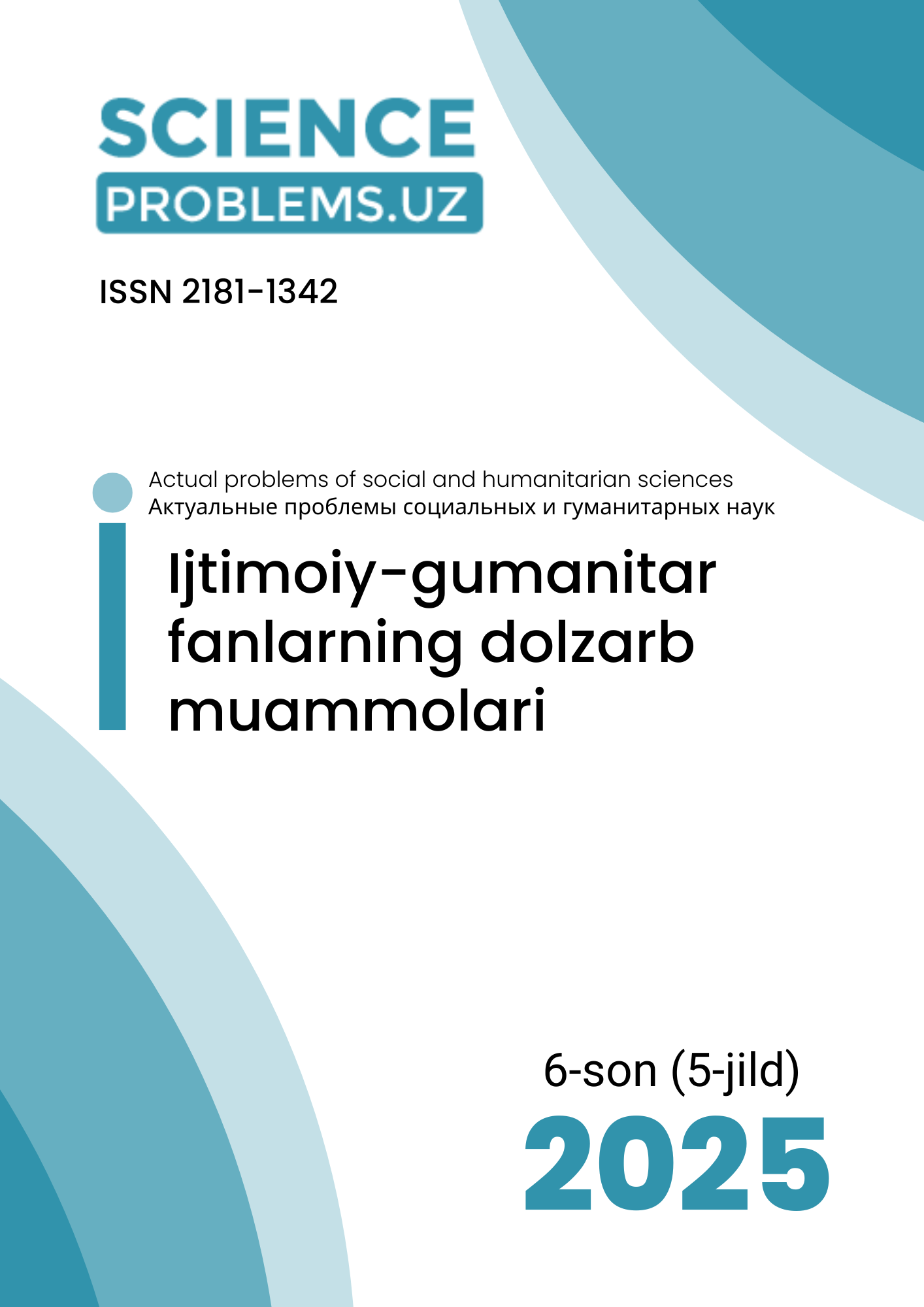HILOSOPHICAL FOUNDATIONS OF UZBEKISTAN'S YOUTH POLICY IN THE SOCIAL, CULTURAL, AND EDUCATIONAL SPHERES AND ITS ROLE IN SHAPING SPIRITUALLY MATURE YOUTH
DOI:
https://doi.org/10.47390/SPR1342V5I6Y2025N05Keywords:
spirituality, ethics, family, society, public policy, enlightenment, trust, duty, immunity, mature youth, spiritual-moral, strategy, public program.Abstract
The article provides a philosophical analysis of the normative legal acts adopted to this day by the experience of state youth policy implemented in the Republic of Uzbekistan and its importance in the education of spiritually mature youth, in the field of social, cultural and educational. Also, the content, goals and objectives, priorities of this policy are based. The current state, achievements and problems of State Youth Policy are analyzed today.
References
1. https://president.uz/uz/lists/view/1876
2. Qo‘dirov E. Yoshlar siyosiy madaniyatining shakllanishi. – T.: TDYuI, 2010. – 112 b
3. Sayfnazarov I, Sayfnazarova F. Yoshlar va oila vatan tayanchi. -T.: 2018.– 85b.
4. Qo‘chqorov V. Yoshlarni tadbirkorlikka jalb qilishning g‘oyaviy-siyosiy asoslari. Akademiya. – T.: 2014. – 185 b.
5. Tojiboyeva X.M. O'quvchi-yoshlar ijtimoiy faolligini oshirishning pedagogik tizimi. Falsafa doktori (PhD) dissertatsiyasi avtoreferati. – T.: 2018.
6. Abzalov E.M. Yoshlarning huquqiy madaniyatini shakllantirish muammolari: Dis... yuridik fan. nomzodi; O'zR IIV Akademiya - T.: 2000. – 153 b.
7. Zamonov Z.T. O'zbekiston ijtimoiy-siyosiy hayotida ma'naviy-axloqiy institutlarning o'rni. Falsafa doktori (PhD) dissertatsiyasi. – T.: 2019. – 91 b.








